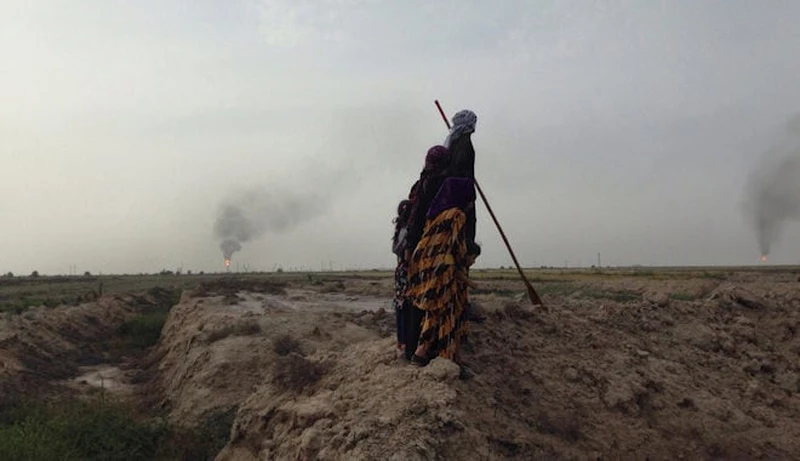Navigating Ruins, Looking for Liberation: Panel discussion with Kali Rubaii, Kanwal Hameed and Laleh Khalili + Q&A
3 Jul 2024 6.30-9pm


Addressing issues related to the ongoing consequences of imperialist exceptionalism, traced to the geopolitics of extraction (whether oil, land, or people — especially with regard to Iraq and the region at large, pressingly Palestine), this discussion will examine historical frameworks and opportunities for resistance. The panel brings together speakers from different fields including cultural anthropology, politics and history with varied research interests such as anti-imperial leftist movements, social and environmental impacts of militarism, forced migration, and the afterlives of war and toxic industries that render much of the global south increasingly uninhabitable. From their individual perspectives, speakers will respond to the exhibition’s central questions of how we narrate the past and envision a template for a future free from colonial legacies of violence and environmental destruction.
Dr. Kali Rubaii is an assistant professor of Anthropology at Purdue University. Through forensic ethnography along the supply chains of war, work focuses on displacement, and environmental health justice. She is leading three projects on 1) how Iraq’s concrete industry is instrumental to militarized privatization in post-war reconstruction, 2) how displaced communities travel to and from their land during episodes of military violence, and 3) how the epidemic of congenital anomalies in Fallujah is understood as a figure of long-term, intergenerational toxification.